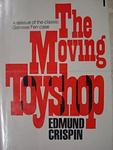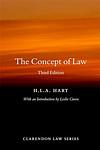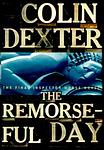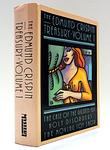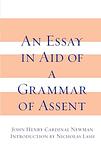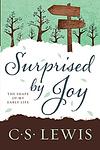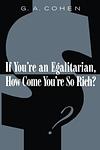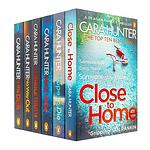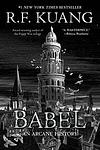The Greatest "Oxford" Books of All Time
Click to learn how this list is calculated.
This list represents a comprehensive and trusted collection of the greatest books. Developed through a specialized algorithm, it brings together 284 'best of' book lists to form a definitive guide to the world's most acclaimed books. For those interested in how these books are chosen, additional details can be found on the rankings page.
Genres
Countries
Date Range
Reading Statistics
Click the button below to see how many of these books you've read!
Download
If you're interested in downloading this list as a CSV file for use in a spreadsheet application, you can easily do so by clicking the button below. Please note that to ensure a manageable file size and faster download, the CSV will include details for only the first 500 books.
Download-
1. Brideshead Revisited by Evelyn Waugh
The novel is a nostalgic story about the narrator's involvement with the Flyte family, British aristocrats living in a grand mansion called Brideshead. The story explores themes of faith, love, and the decline of the British aristocracy, primarily through the narrator's relationships with the family's Catholic faith and his complicated friendship with the family's son and his love for the daughter. The novel is set in the backdrop of the time period between the two World Wars.
-
2. Gaudy Night by Dorothy L Sayers
"Gaudy Night" is a mystery novel set in a women's college at Oxford University. The protagonist, a successful mystery novelist, is invited back to her alma mater as a guest of honor and soon finds herself embroiled in a series of disturbing incidents, including poison pen letters, vandalism, and threats. As she investigates, she is forced to confront her own feelings about intellectual pursuits versus emotional commitments. The novel explores themes of women's roles in society, the value of education, and the balance between personal life and professional ambition.
-
3. Zuleika Dobson by Max Beerbohm
"Zuleika Dobson" is a satirical novel set at Oxford University, where the beautiful Zuleika, a conjurer by profession, arrives and captivates the male population, including the Duke of Dorset. The Duke falls madly in love with her, but she remains indifferent to his feelings. In a tragic twist, the Duke decides to commit suicide to prove his love, starting a chain reaction among other male students. The novel is a critique of Edwardian Oxford and the foolishness of falling victim to unrequited love.
-
4. The Moving Toyshop by Edmund Crispin
In this classic British detective novel, a poet on holiday in Oxford stumbles upon a woman's body in a toyshop at night, only to find the shop has vanished by morning. Teaming up with an eccentric literature professor, the poet embarks on a whimsical and cerebral quest to solve the mystery, navigating a labyrinth of literary references, quirky characters, and puzzling clues. The story combines elements of farce and traditional whodunit, leading to a climactic chase and an unexpected twist, all set against the backdrop of the historic university town.
-
5. The Concept Of Law by H. L. A. Hart
This seminal work in legal philosophy offers a comprehensive analysis of the nature of law, articulating a sophisticated theory that emphasizes law as a system of social rules. It challenges earlier positivist and command theories of law, introducing the idea of the "rule of recognition" as a fundamental aspect by which a society accepts certain norms as legally binding. The book also explores the relationship between law and morality, the variety of legal systems, and the notion of legal rights, ultimately providing a framework for understanding the complex structure and functioning of legal institutions in modern societies.
-
6. The New Oxford Book Of English Verse by Helen Gardner
This anthology is a comprehensive collection of English poetry, spanning centuries from the medieval period to the 20th century. It showcases the evolution of English verse, featuring works from a wide array of poets, both renowned and lesser-known. The selection emphasizes the richness and diversity of English poetic tradition, offering readers a broad spectrum of themes, styles, and perspectives. Edited by a distinguished scholar, the collection is curated to highlight the beauty, complexity, and depth of English literature, making it an essential volume for poetry enthusiasts and a valuable resource for students of English literature.
-
7. Last Seen Wearing by Colin Dexter
"Last Seen Wearing" is a gripping crime novel that follows Inspector Morse as he investigates the mysterious disappearance of a young girl named Valerie Taylor. With little evidence and a trail that has gone cold, Morse must navigate through a web of secrets and lies to uncover the truth behind Valerie's vanishing, all while battling his own personal demons. As the investigation deepens, Morse's determination and sharp intuition lead him closer to a shocking revelation that will leave readers on the edge of their seats.
-
8. Oxford English Dictionary by Oxford University Press
This book is a comprehensive and authoritative resource that provides definitions, etymology, and pronunciation for more than half a million English words. It is widely regarded as the accepted authority on the English language. The dictionary includes words from across the English-speaking world and from all areas of human knowledge, and is continually updated to reflect the evolution of the language.
-
9. Doomsday Book by Connie Willis
In this science fiction novel, a young historian undertakes a time-travel journey to the 14th century for academic research, only to find herself stranded amidst the onset of the Black Death. As she navigates the challenges of medieval England, her colleagues in the 21st century grapple with a deadly influenza pandemic, complicating efforts to retrieve her. The narrative weaves between the past and the present, exploring themes of human resilience, the universality of suffering across time, and the ethical implications of time travel, all while the historian and her contemporaries confront mortality, history, and their own personal crises.
-
10. Four Essays On Liberty by Isaiah Berlin
This philosophical work is a collection of essays that explore the concept of liberty and its place in modern society. The author delves into the distinction between two forms of liberty—negative and positive—and examines the tensions and conflicts that arise between them. The essays also discuss the limits of freedom, the role of individual choice, and the impact of social and political pressures on personal liberties. Through historical examples and philosophical argumentation, the author presents a nuanced view of freedom, suggesting that a balance must be struck between individual liberty and communal values to maintain a stable and just society.
-
11. The Remorseful Day by Colin Dexter
In this final installment of a popular detective series, the protagonist, a Chief Inspector, is facing health issues but is determined to solve his last case. The case involves the mysterious death of a nurse, initially thought to be due to natural causes. However, as the inspector delves deeper into the investigation, he uncovers a web of deceit, betrayal, and murder, leading to a surprising and dramatic conclusion.
-
12. The Case Of The Gilded Fly by Edmund Crispin
This book is a classic detective novel set in post-World War II Oxford, where a group of actors and playwrights gather to stage a new play. Amidst the theatrical setting, a complex murder mystery unfolds when a despised actress is found dead, seemingly a suicide. However, the astute and eccentric amateur detective, also a professor of English at Oxford, suspects foul play. Using his unique blend of literary knowledge and logical reasoning, he delves into the lives and secrets of the theatrical troupe, unraveling a web of jealousy, ambition, and deceit to expose the murderer. The narrative is celebrated for its witty dialogue, atmospheric setting, and the clever intertwining of literary references with a classic whodunit plot.
-
13. The Oxford Book Of Comic Verse by John Gross
This anthology is a comprehensive collection that spans several centuries, showcasing the wit, humor, and satire that have been a part of English poetry. Compiled with a discerning eye for both the amusing and the poignant, it brings together a diverse range of poets, from the well-known to the obscure, each contributing to the rich tapestry of comic verse. The selection not only highlights the evolution of English comedic poetry but also offers readers an insight into the social and cultural contexts that shaped these works. Through its carefully curated content, the anthology invites readers to explore the lighter side of poetry, proving that verse can be both entertaining and intellectually stimulating.
-
14. The Oxford Book Of Letters by Frank Kermode, Anita Kermode
This anthology is a comprehensive collection of letters spanning several centuries, curated to provide readers with a unique glimpse into the personal lives, historical events, and cultural contexts of various periods. The letters, selected for their literary merit and historical significance, offer intimate insights into the thoughts, emotions, and personalities of both renowned figures and ordinary individuals. Through these correspondences, the book not only chronicles the evolution of letter writing as an art form but also serves as a vivid tapestry of human experience, reflecting the diverse ways in which people have communicated their ideas, feelings, and experiences across time.
-
15. The Dead Of Jericho by Colin Dexter
In this gripping detective novel, Chief Inspector Morse is drawn into a complex web of relationships and deceit when he investigates the mysterious death of a woman in the quiet Jericho neighborhood of Oxford. Initially ruled as a suicide, Morse's instincts tell him there's more to the case, leading him on a trail that involves a love affair, academic rivalry, and hidden secrets. As he delves deeper into the lives of the local residents, Morse must untangle the intricate puzzle before him, using his unique blend of intuition and intellect to uncover the truth behind the facade of respectability.
-
16. A Grammar Of Assent by John Henry Newman
The book in question is a philosophical treatise on the nature of faith and the process by which individuals come to believe in religious doctrines. It explores the distinction between notional assent, which is intellectual agreement with an idea, and real assent, which is a deeper, more personal conviction. The author argues that faith is not solely based on logical deduction or empirical evidence but also involves a personal commitment that transcends purely rational understanding. This commitment, or real assent, is characterized by its certitude and the role of the conscience in apprehending religious truths. The work is a significant contribution to the philosophy of religion and the understanding of the role of faith in human cognition and action.
-
17. Apologia Pro Vita Sua by John Henry Newman
The book in question is a profound religious autobiography that presents a defense of the author's spiritual journey from Anglicanism to Roman Catholicism. Written in response to criticism from an Anglican clergyman, the work meticulously details the author's theological reflections and the intellectual struggles that led to his conversion. It stands as a significant document of the religious controversies of the 19th century and offers insight into the author's personal convictions and the broader religious landscape of the time. The narrative is both a personal apologia and a broader exploration of faith and doctrine, reflecting the author's commitment to his beliefs and his desire to explain and justify his spiritual evolution to his contemporaries.
-
18. The Idea Of A University by John Henry Newman
The book is a seminal work on higher education that explores the purpose, nature, and scope of a university's role in intellectual life. It presents a vision of university education as a place for cultivating the intellect and character, rather than merely a means to an end or a vocational training center. The author argues for the importance of liberal education, which provides a broad and holistic approach to learning, enabling students to develop their minds and moral sense. Through a series of discourses, the work defends the idea that the pursuit of knowledge for its own sake is valuable and that a university should be a community of thinkers, engaging in intellectual culture, and promoting academic discourse without succumbing to external pressures.
-
19. Surprised By Joy by C. S. Lewis
The book is a reflective memoir by a prominent British writer, chronicling his early life, intellectual pursuits, and spiritual journey from atheism to Christianity. It delves into his experiences of seeking joy and fulfillment in various pursuits and relationships, only to find them lacking, leading to his eventual conversion. The narrative explores themes of longing, grief, and the ultimate discovery of faith, providing a profound insight into the author's personal and philosophical evolution.
-
20. If You're An Egalitarian, How Come You're So Rich? by G. A. Cohen
This book delves into the apparent contradiction between advocating for egalitarian principles and possessing personal wealth. The author, a prominent political philosopher, uses a blend of rigorous argument, personal reflection, and analytical philosophy to explore whether it is hypocritical for a wealthy person to support redistributive policies. The text challenges readers to consider the moral implications of their own economic status and beliefs, and examines broader issues of justice, equality, and personal responsibility within a capitalist society. Through engaging philosophical inquiry, the book prompts a deeper understanding of the practical and ethical tensions that accompany discussions of wealth and equality.
-
21. To Say Nothing of the Dog by Connie Willis
In this comedic science fiction novel, a time-traveling historian is sent back to Victorian England to recover a missing artifact and correct a temporal anomaly that threatens to alter history. Amidst the chaos of trying to adhere to the peculiarities of the era, he must also deal with an eccentric cast of characters, including a lovable but troublesome bulldog. As he navigates the complexities of time travel and the nuances of historical events, the protagonist finds himself entangled in a series of humorous misadventures that challenge the very rules of time and space, all while trying to ensure the past remains intact.
-
22. No Way Out by Cara Hunter
This gripping novel follows the investigation into a devastating house fire in Oxford, which claims the lives of two children and leaves their mother fighting for her life. As detectives dig deeper, they uncover a tangled web of secrets and lies, revealing that the tragedy is far from a simple accident. The narrative, rich with suspense and unexpected twists, explores themes of family, deception, and the lengths to which people will go to protect their secrets. The detective leading the case must navigate through the misleading clues and pressure from the community to solve the mystery, uncovering shocking truths that challenge the boundaries of justice and morality.
-
23. Babel by R. F. Kuang
This novel is a dark academic fantasy set in an alternate 19th-century Oxford, where translation is the key to harnessing magical power. It follows the journey of an orphan from Canton, who, after a tragic loss, is brought to England and later admitted into the prestigious Royal Institute of Translation, known as Babel. There, he discovers the true cost of the empire's linguistic dominance and magical control. As tensions rise and loyalties are tested, the protagonist must navigate a complex web of colonialism, power, and rebellion, ultimately confronting the oppressive structures of the institute and the empire it serves. The narrative weaves together themes of language, knowledge, and resistance, challenging the foundations of power and the price of progress.
-
24. Young Shoulders by John Wain
"Young Shoulders" is a coming-of-age novel about a 10-year-old boy living in a small English town during World War II. The protagonist struggles with the harsh realities of war, the death of his father, and his mother's mental health issues. Despite the difficulties, he finds solace in his love for literature and his friendship with a local bookseller. The narrative explores themes of loss, resilience, and the power of literature.
-
25. A Discovery Of Witches by Deborah Harkness
This novel unfolds the tale of Diana Bishop, a young scholar and descendant of witches, who stumbles upon a bewitched manuscript in Oxford's Bodleian Library. Her discovery pulls her back into the world of magic, propelling her into the heart of a dangerous mystery. Alongside Matthew Clairmont, a mysterious vampire and geneticist, Diana is thrust into a forbidden alliance and an enchanted journey through time. As they seek to understand the manuscript's secrets, they must navigate the perilous waters of forbidden love and the age-old enmities among witches, vampires, and daemons, unraveling a history that threatens the fragile peace that has long existed between creatures and humans.
Reading Statistics
Click the button below to see how many of these books you've read!
Download
If you're interested in downloading this list as a CSV file for use in a spreadsheet application, you can easily do so by clicking the button below. Please note that to ensure a manageable file size and faster download, the CSV will include details for only the first 500 books.
Download


